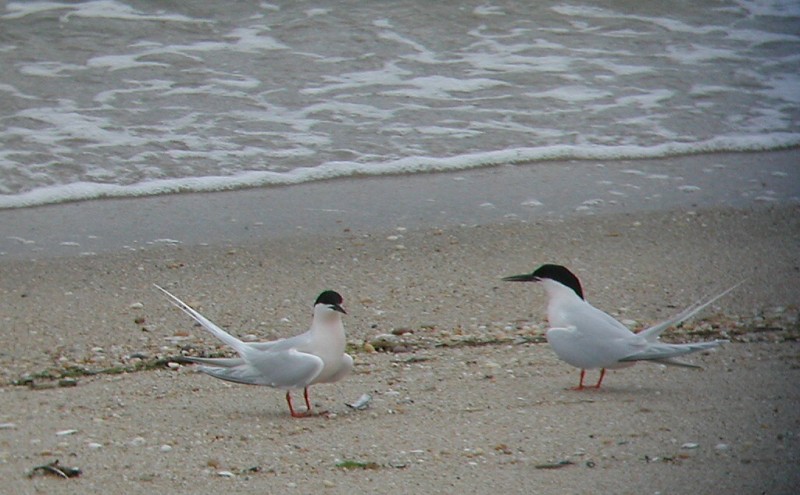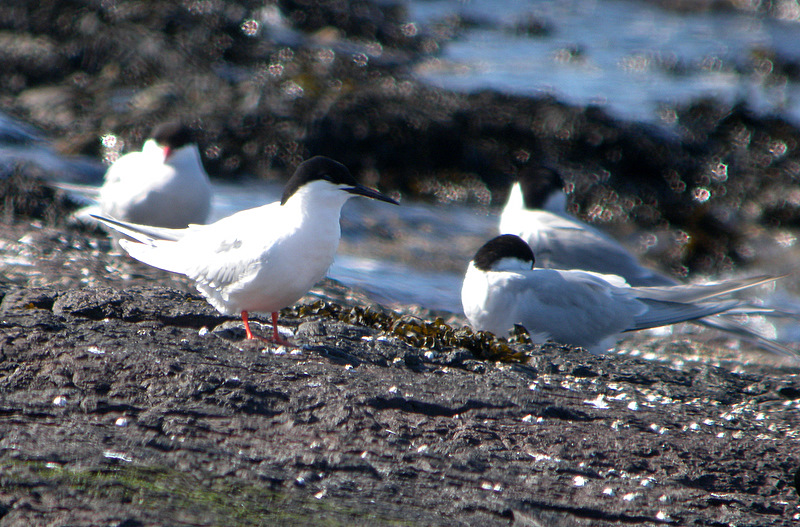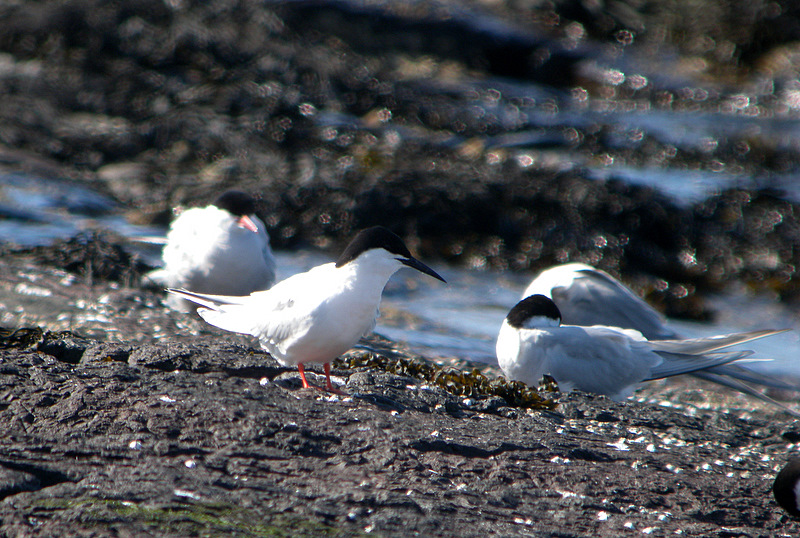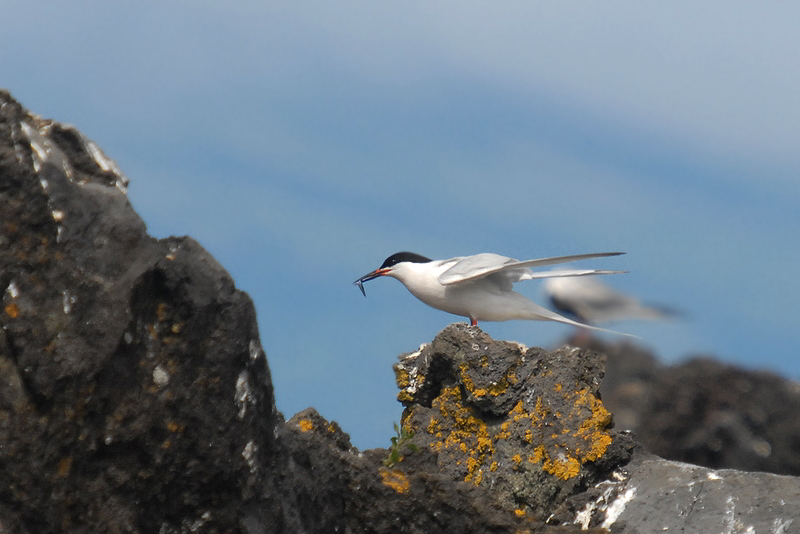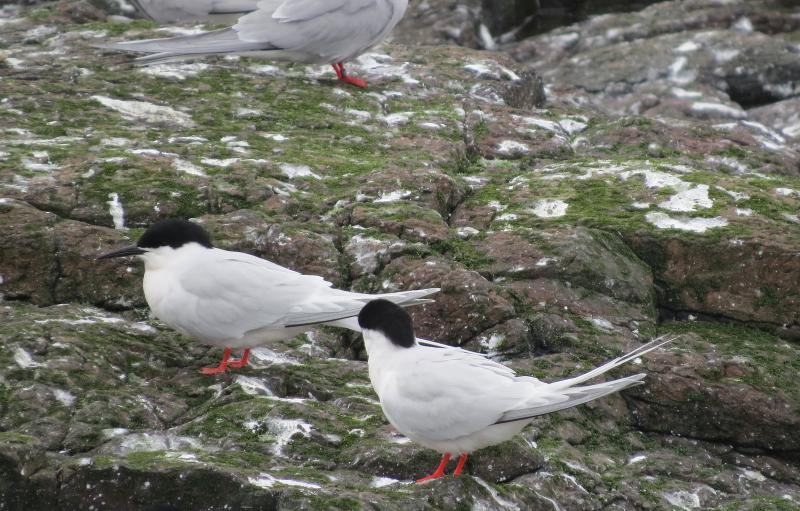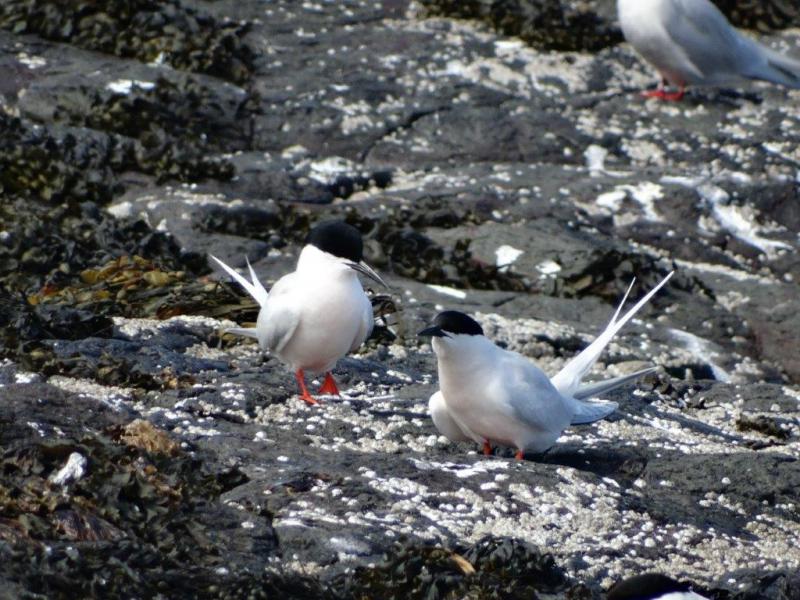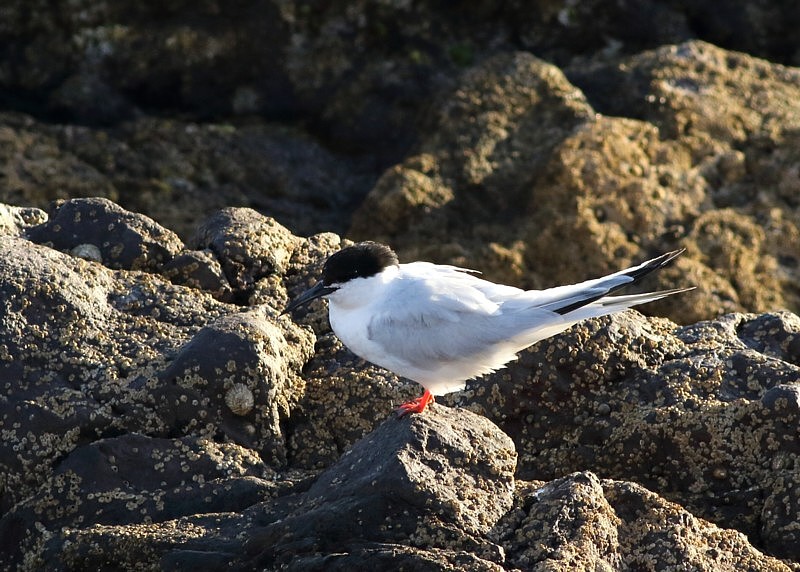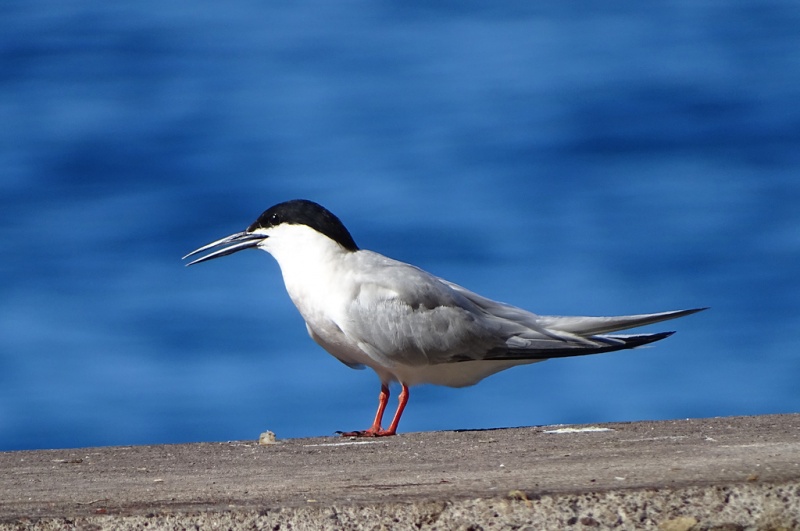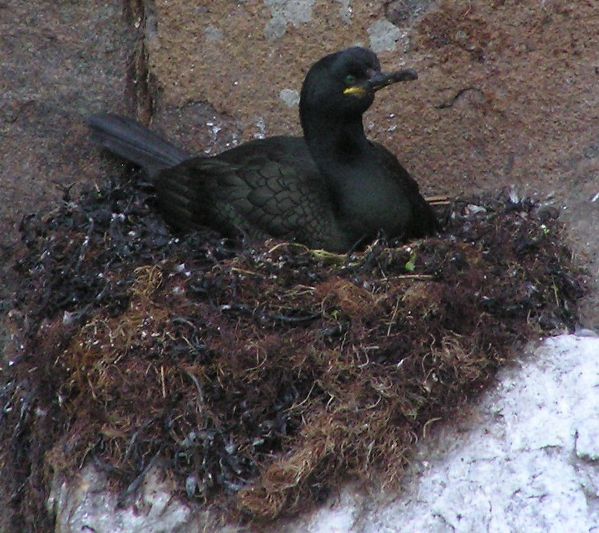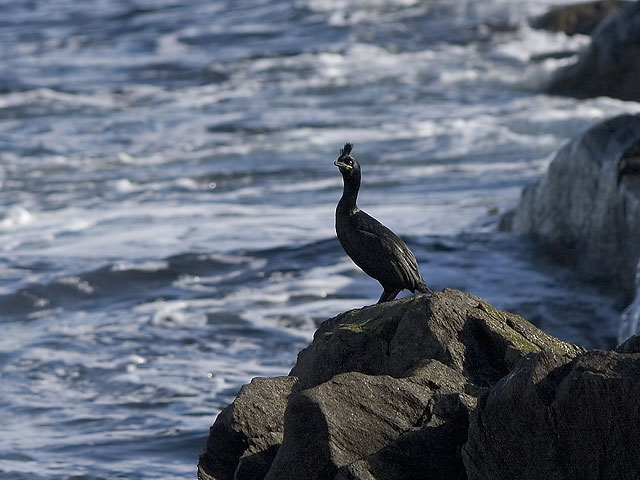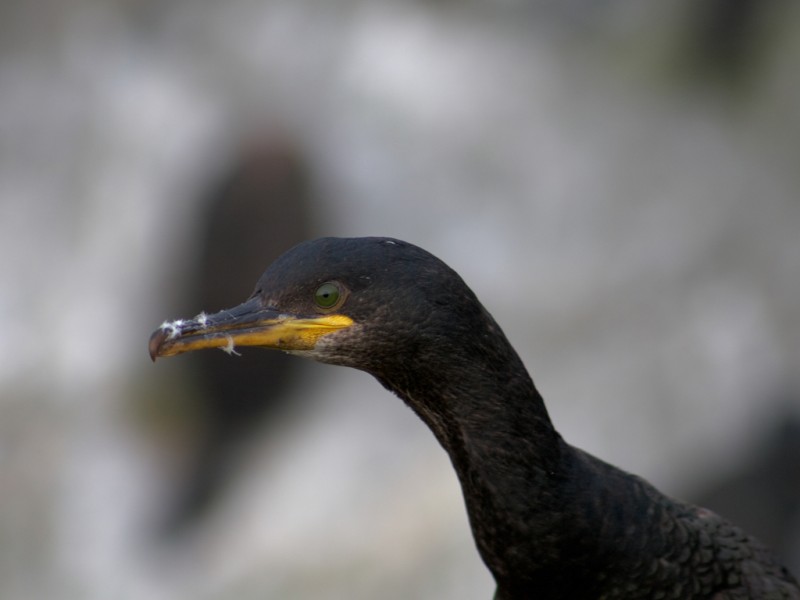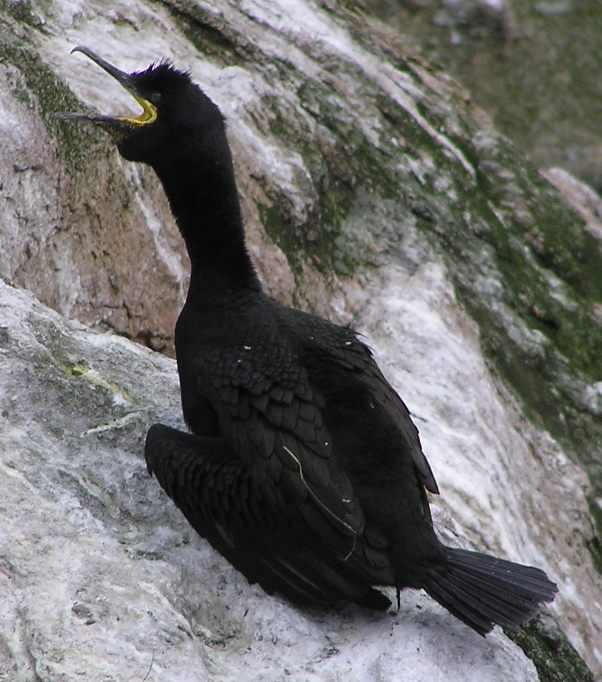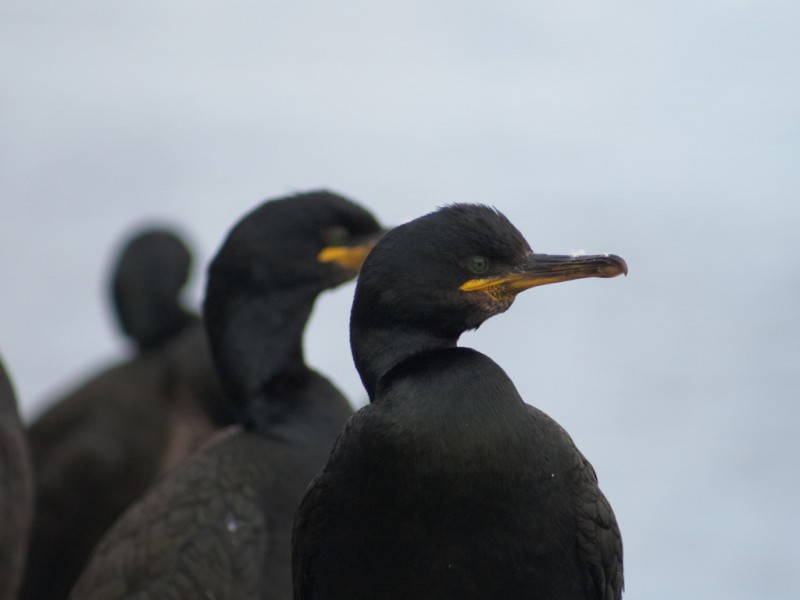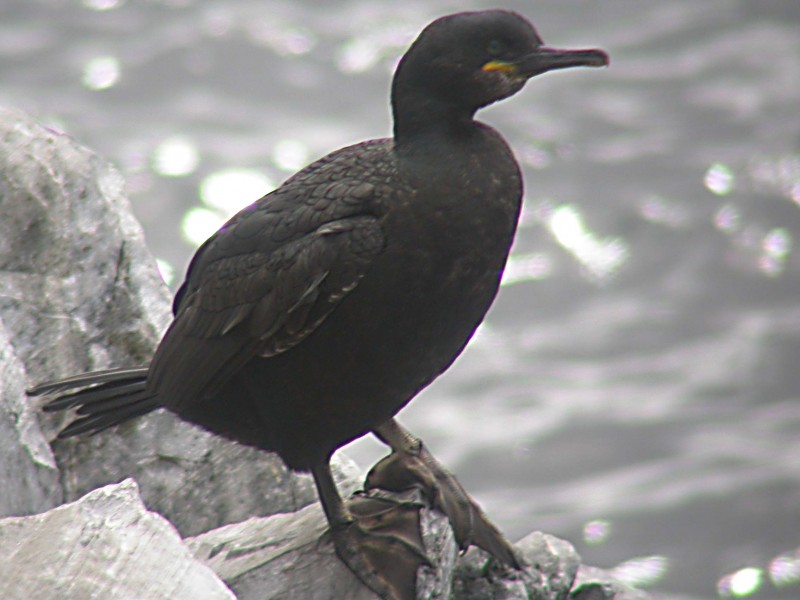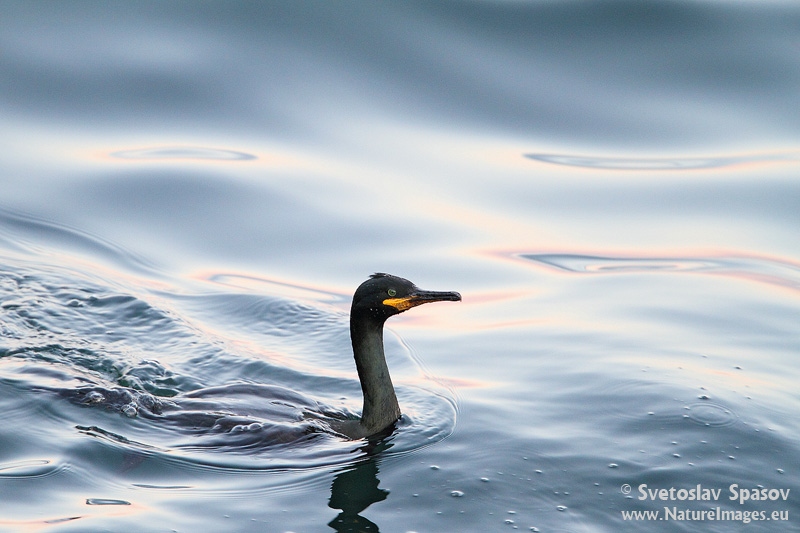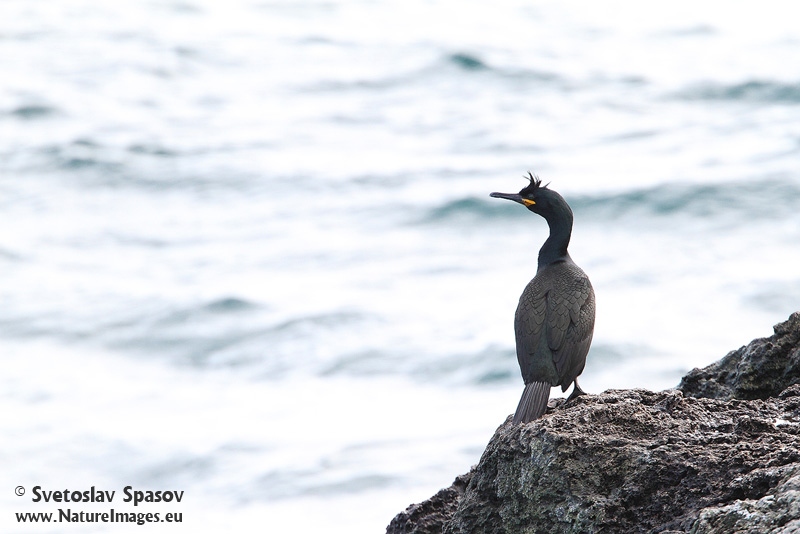Roseate Tern (Sterna dougallii)
Shag (Gulosus aristotelis)
Differs from Common and Arctic Tern by; noticably shorter wings, longer streamers, much paler grey upperparts, pure white underparts (faint rosy wash not very conspicuous), black bill (red base in breeding birds), dark outer primaries and no dark edge to inner primaries. Amount of red in bill increases as breeding season progresses, but also varies geographically. Wingbeats shallower and much quicker than in Common and Arctic Tern. Fishes with characteristic diagonal dives. Despite the long streamers, the birds appear short-tailed in flight, but head and bill are long and slender. The pale plumage, dark bill and giss recalls a small Sandwich Tern. Adult winter plumage with all dark bill and white forehead. Juveniles resembles juvenile Sandwich Terns, with more complete dark cap than Arctic and Common, and much more contrasting markings on back (especially to wings).
Sound:Extremely harsh calls. Like mix of Caspian and Arctic Tern. Very hard and raspy "kreeeet", harder and higher pitched than Caspian Tern, but equally harsh. Other calls include more Arctic/Common tern-like short "kek", and similar.
Contact call:
Distribution:
Wikipedia: map (se also Xeno-canto below)
Ecology:Birdlife ecology
Links:
Observation.org Latest observations
Image search Flickr NB! May give other species
CCCC-photo:USFWS/Southeast, Licence,Link.
CC-photo:Werner Witte, Licence,Link.
Easily distinguished from Cormorant in breeding plumage, but at other times easily confused with congeners. Smaller than Cormorant, with a more slender neck and rounded head. Bill slender and straight. Steep forehead with peaked front crown, differs from the wedge shaped head of Cormorant. Bill often with yellow tinge (never in Cormorant). Flies with quicker wing-beats and straight neck (Cormorant with bulge). Often dives with a high jump. Juveniles with darker underparts than Cormorant, and often an obvious brownish tinge. Rare in brackish water.
Sound:Very deep and harsh voice heard at breeding ground. Deep grunts alternated, or ended with clicking sounds.
Social interaction:
Distribution:
Wikipedia: map (se also Xeno-canto below)
Ecology:Birdlife ecology
Links:
Observation.org Latest observations
Image search Flickr NB! May give other species
CCSounds:www.xeno-canto.org,Jens Kirkeby,http://creativecommons.org/licenses/by-nc-sa/4.0/

 English
English Albanian
Albanian
 Armenian
Armenian
 Bulgarian
Bulgarian
 Catalan
Catalan
 Croatian
Croatian
 Czech
Czech
 Danish
Danish
 Dutch
Dutch
 Finnish
Finnish
 French
French
 Georgian
Georgian
 German
German
 Greek
Greek
 Hungarian
Hungarian
 Italian
Italian
 Latvian
Latvian
 Lithuanian
Lithuanian
 Macedonian
Macedonian
 Norwegian
Norwegian
 Polish
Polish
 Portuguese
Portuguese
 Romanian
Romanian
 Russian
Russian
 Sami : Lule sami
Sami : Lule sami
 Sami : North sami
Sami : North sami
 Sami : South sami
Sami : South sami
 Scientific names
Scientific names
 Serbian
Serbian
 Spanish
Spanish
 Swedish
Swedish
 Ukrainian
Ukrainian


